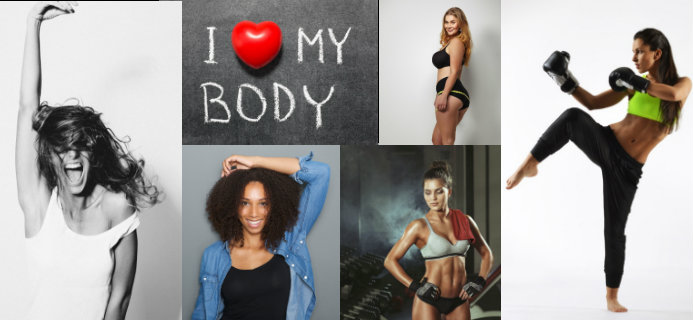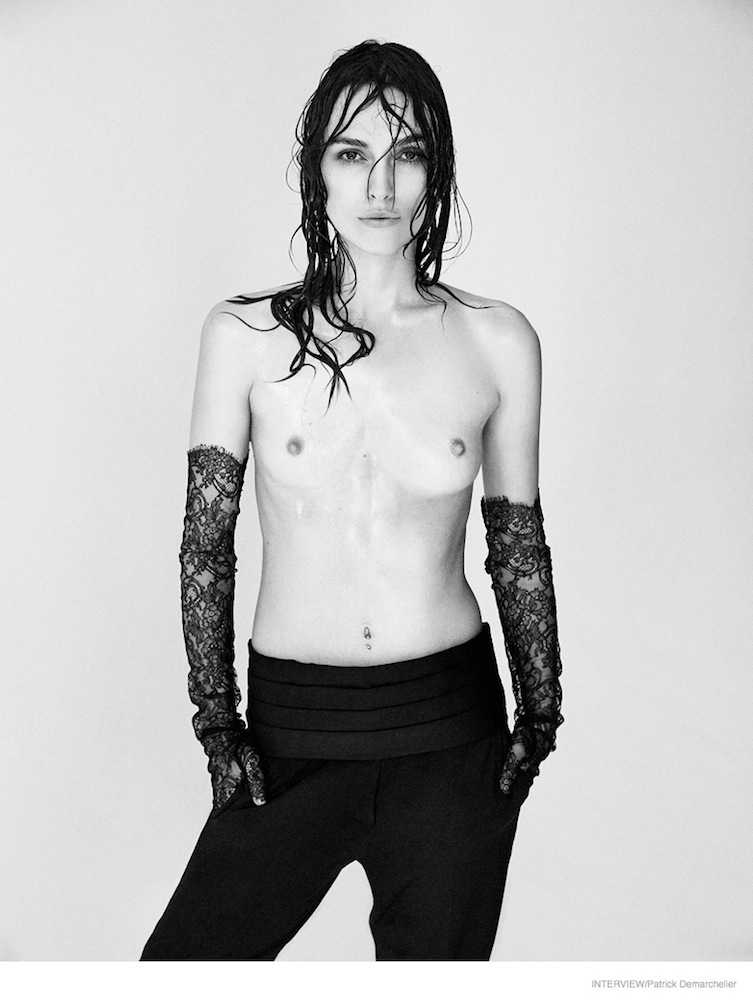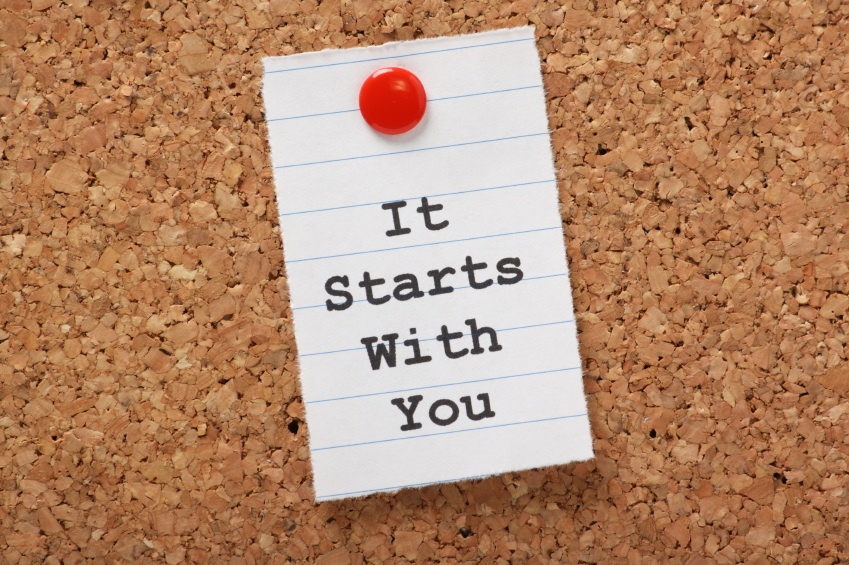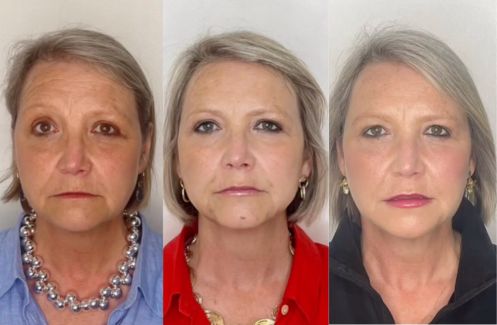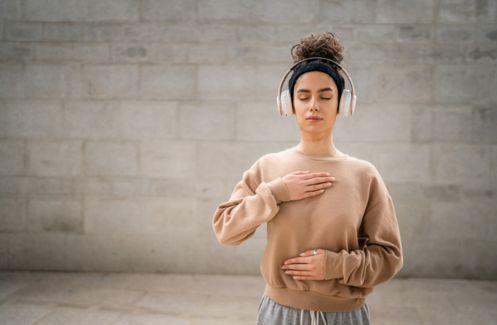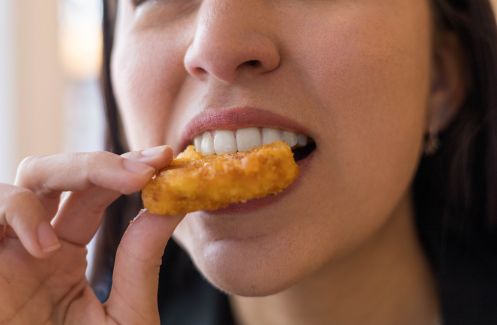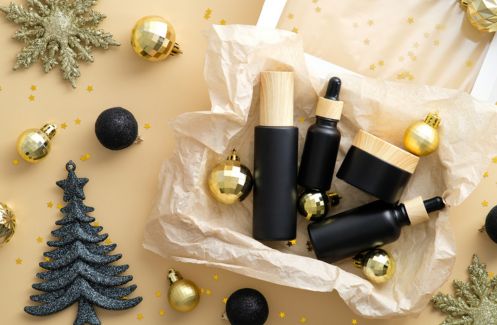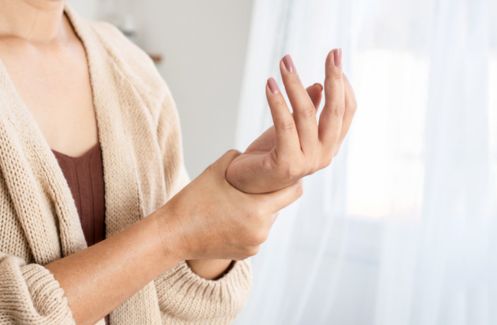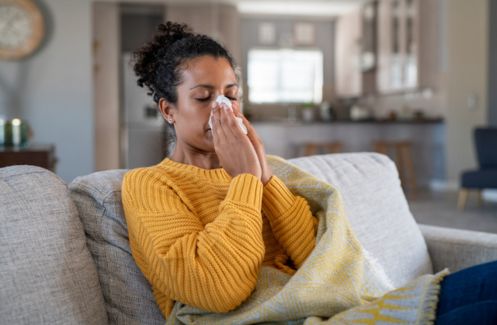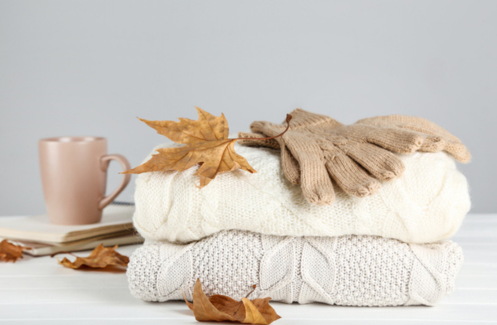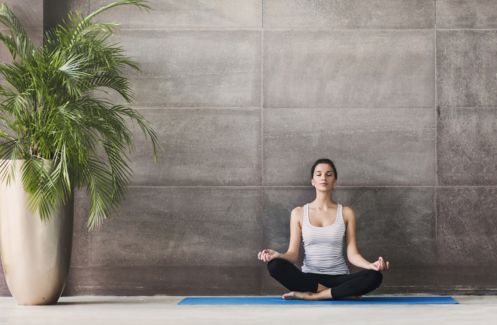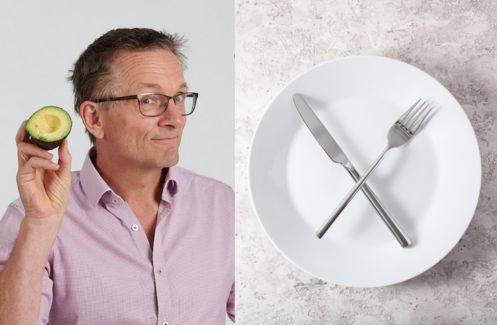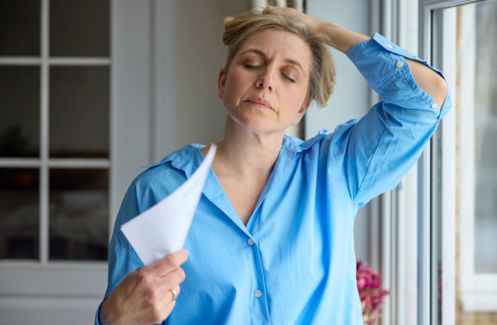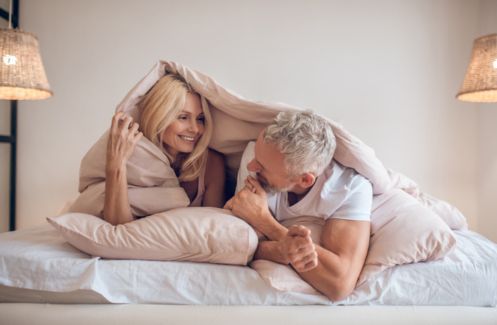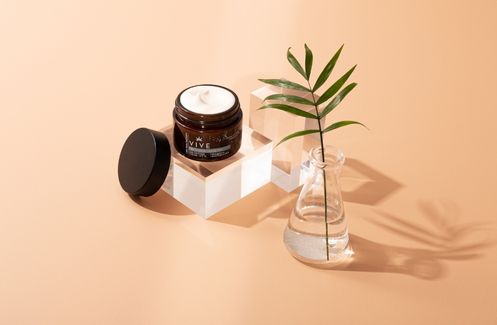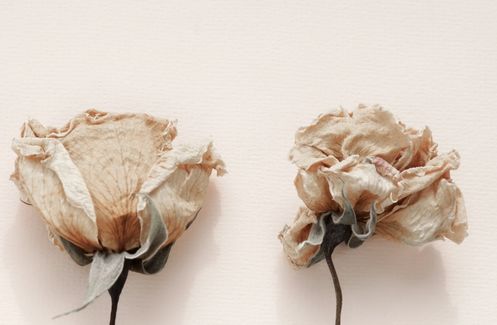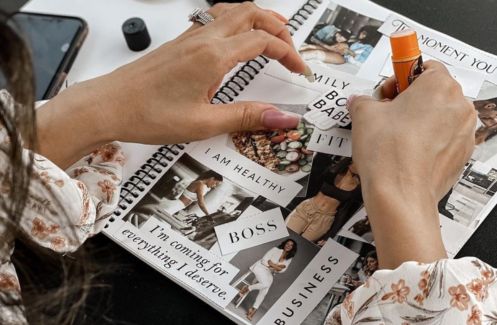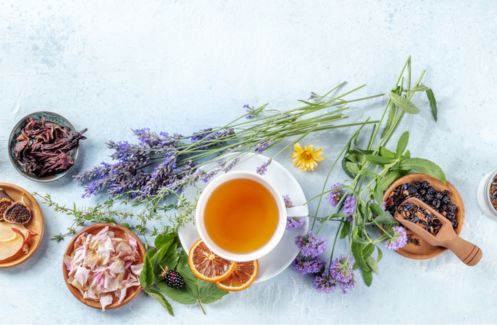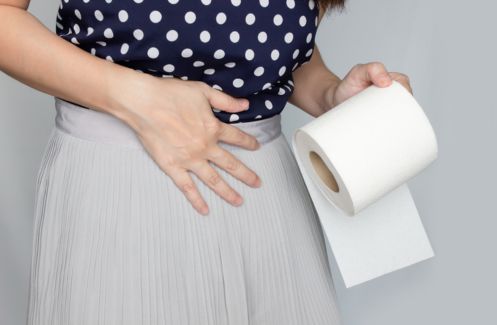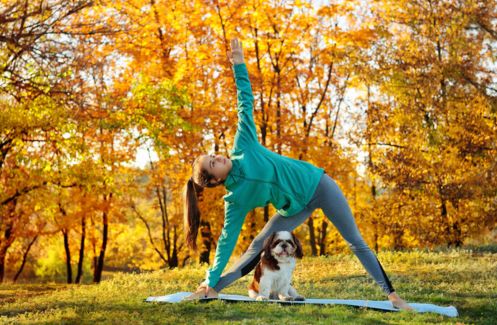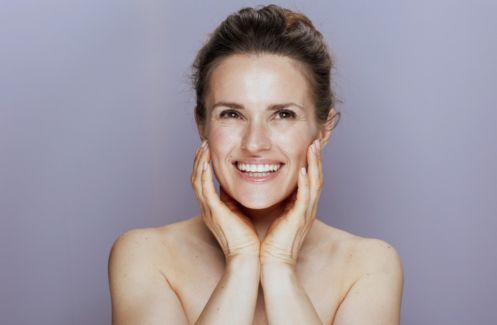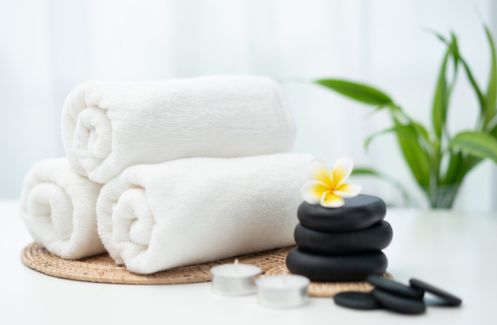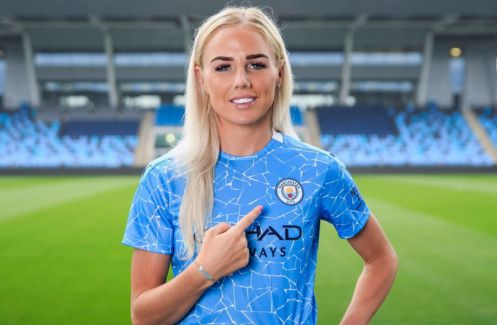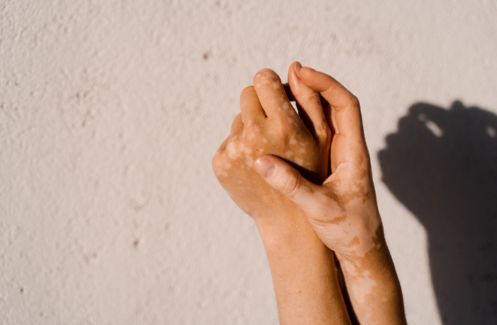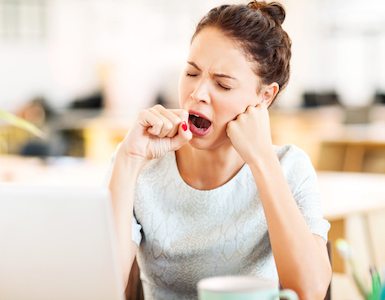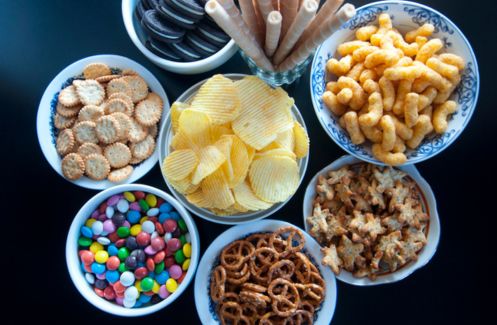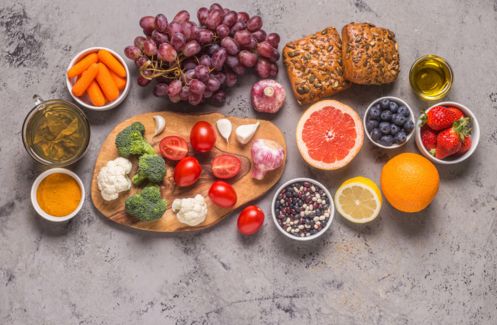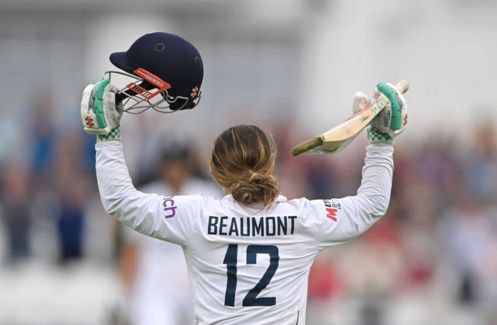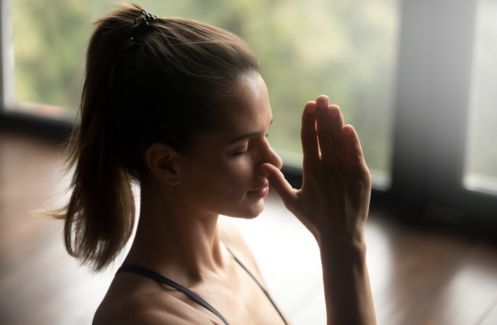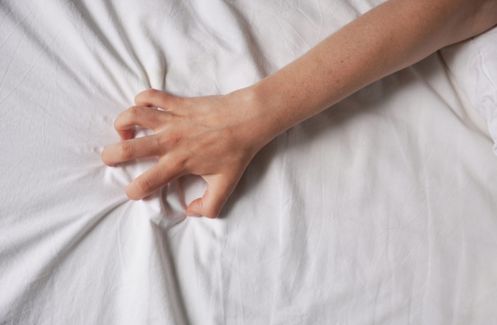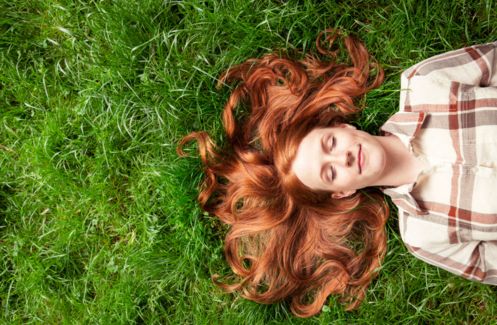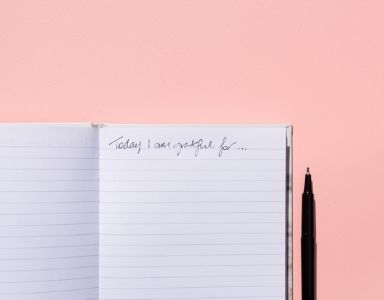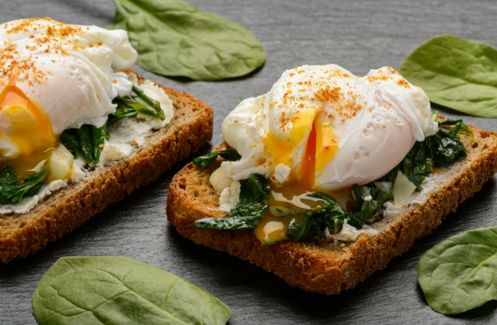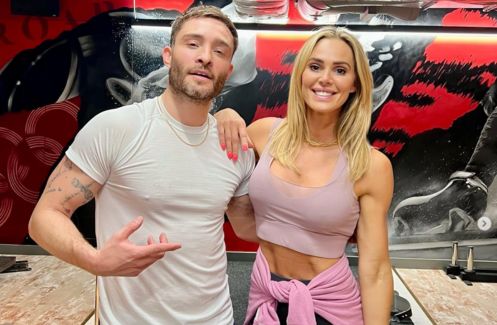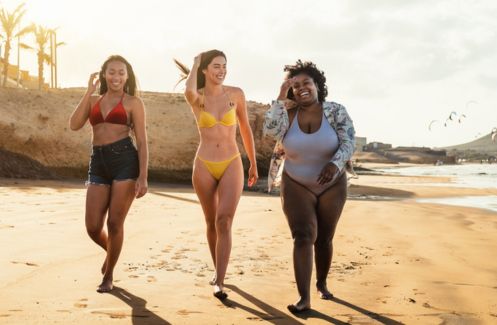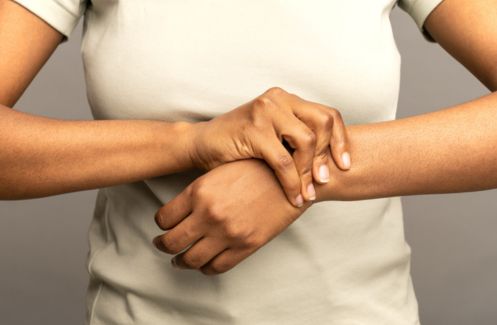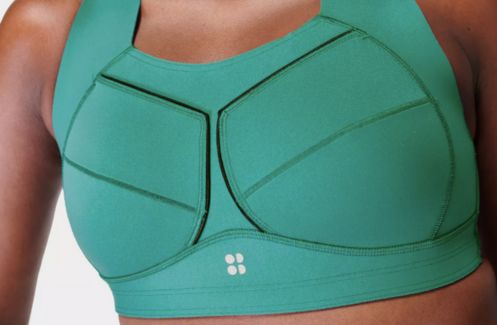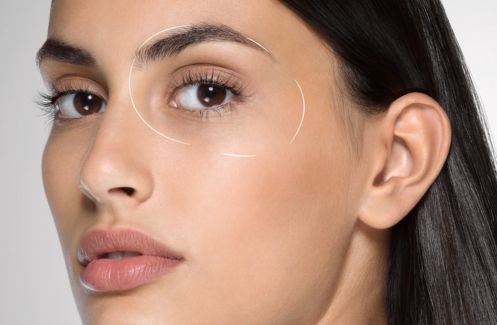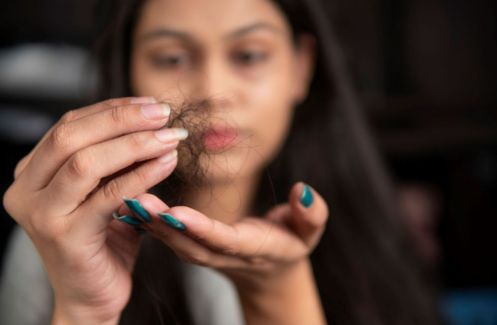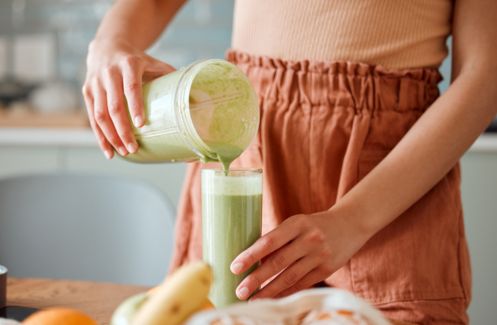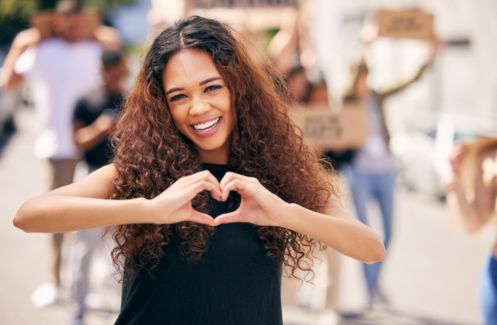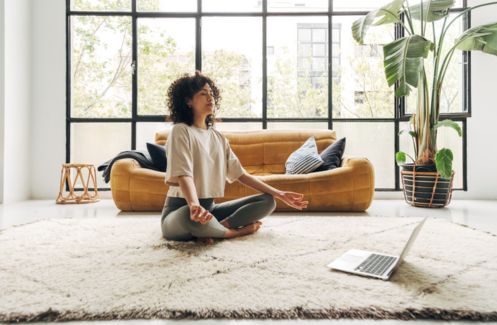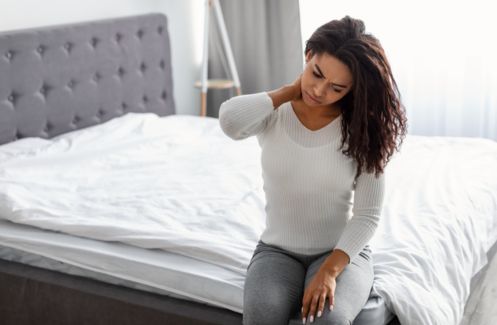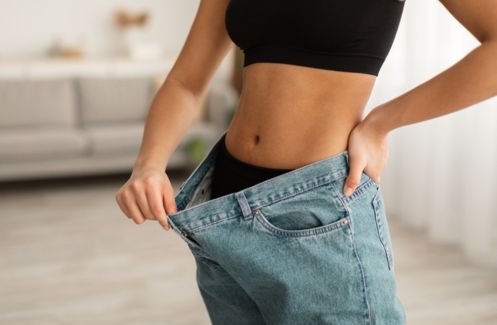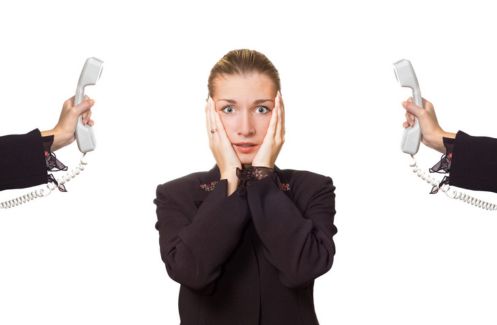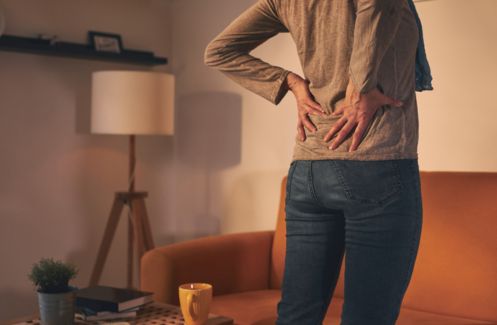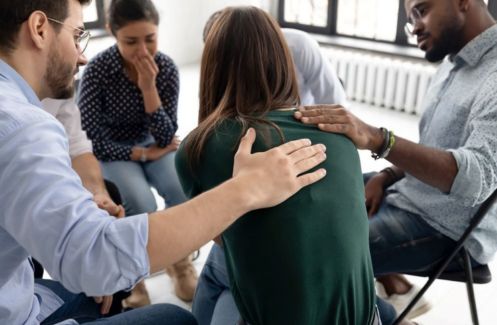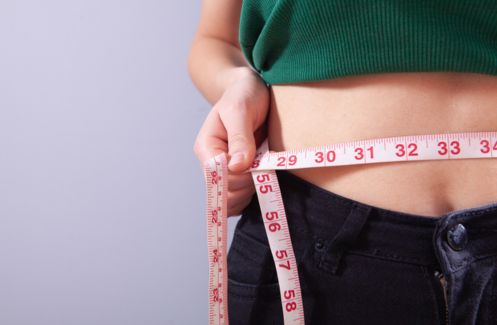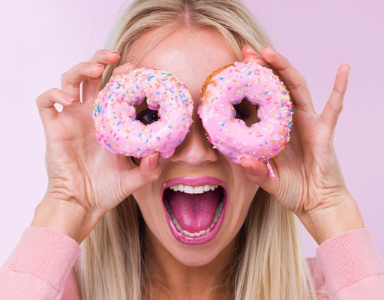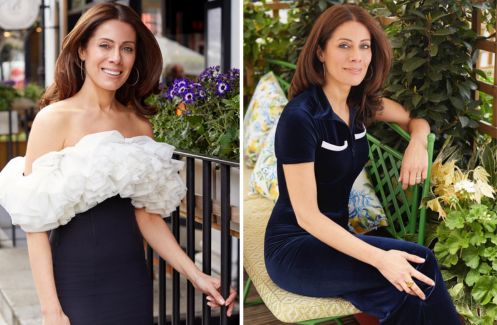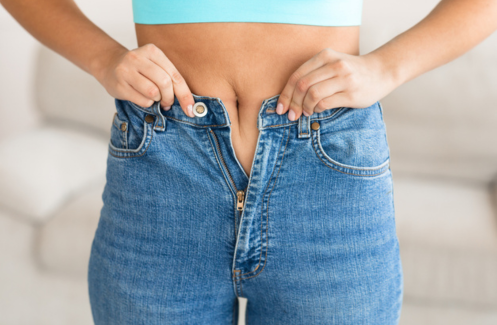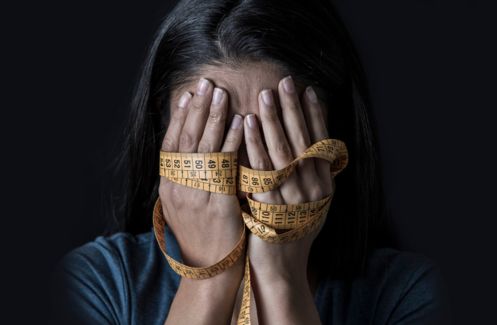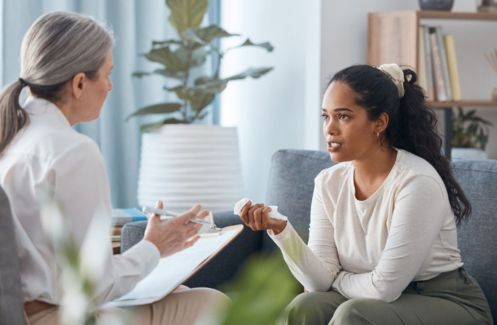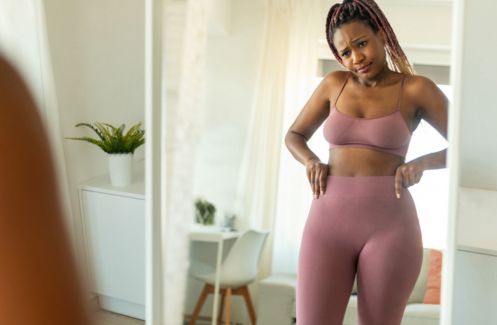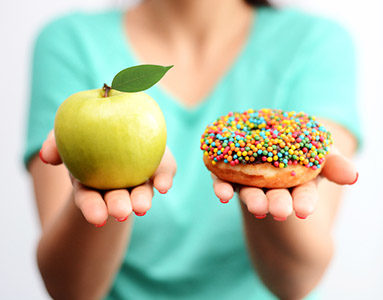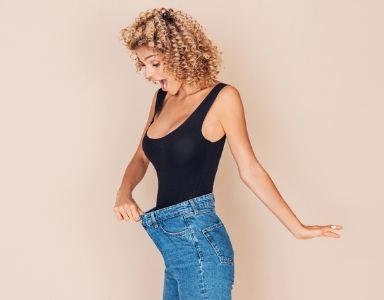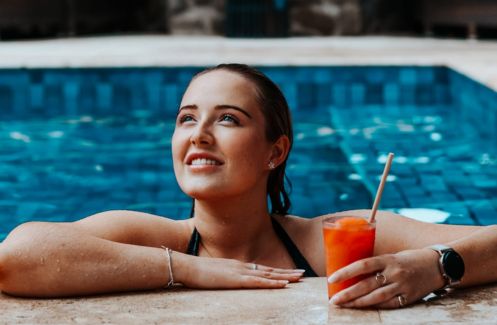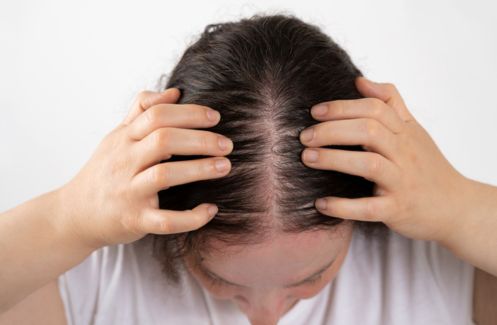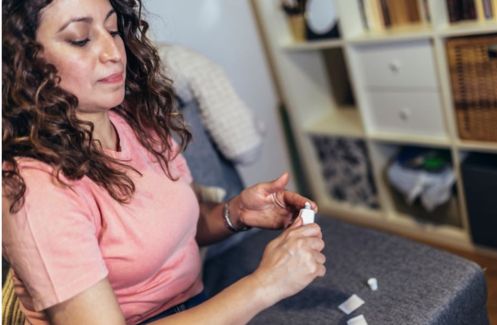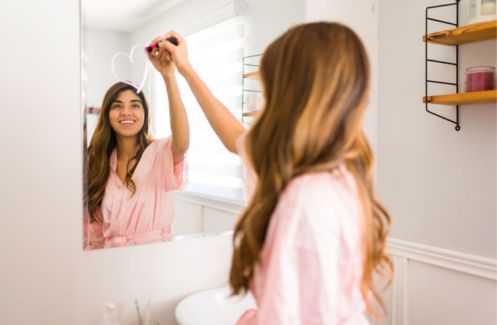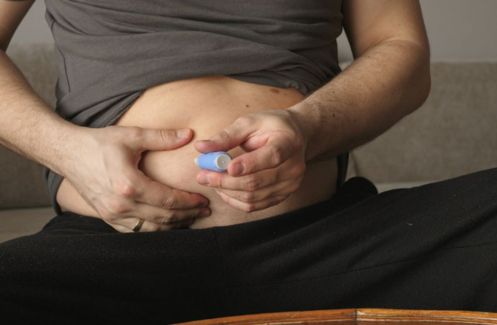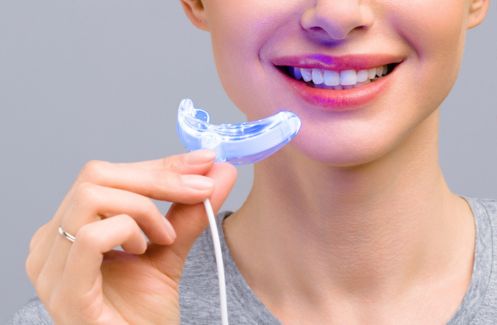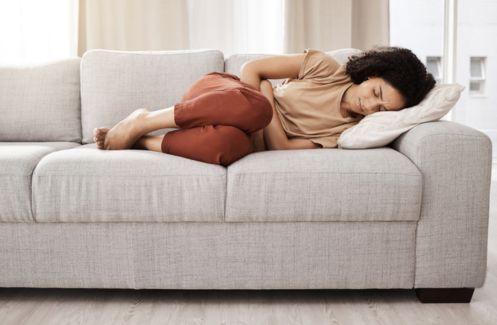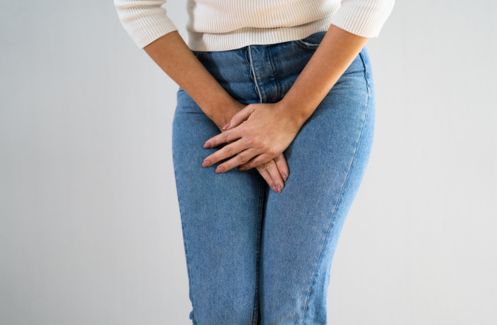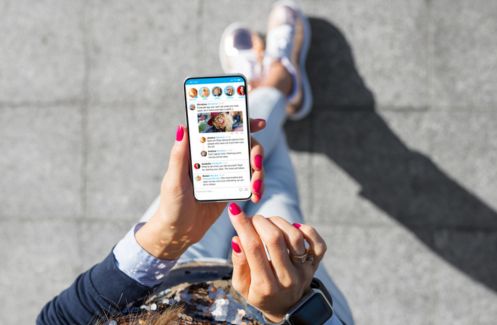Strong is the new skinny. Healthy is the new black. Those slogans are big news because we’re finally starting to celebrate our bodies for what they can do, not what they look like. Christina Stylianou remembers being at war with her body and reports on why 2015 could be the year of body positivity
Although I was always a size eight to ten throughout my childhood and teenage years, I went through a phase where I wanted to become skinnier.
I felt that because I was slim, people expected me to look more like the models on TV and in magazines, an image I obviously didn’t live up to. Even if others weren’t comparing, I was, and I knew I wasn’t as skinny. A big issue for me at 15 was my thighs, often asking my friend ‘Are my legs skinner than hers?”
I suppose the idea of skinny being admirable was something I grew up around. Every person I knew who was overweight constantly voiced their insecurities regarding their size and complained constantly about the new diet they were on so naturally, I grew up with a fear of becoming fat.
I grew up with a fear of becoming fat
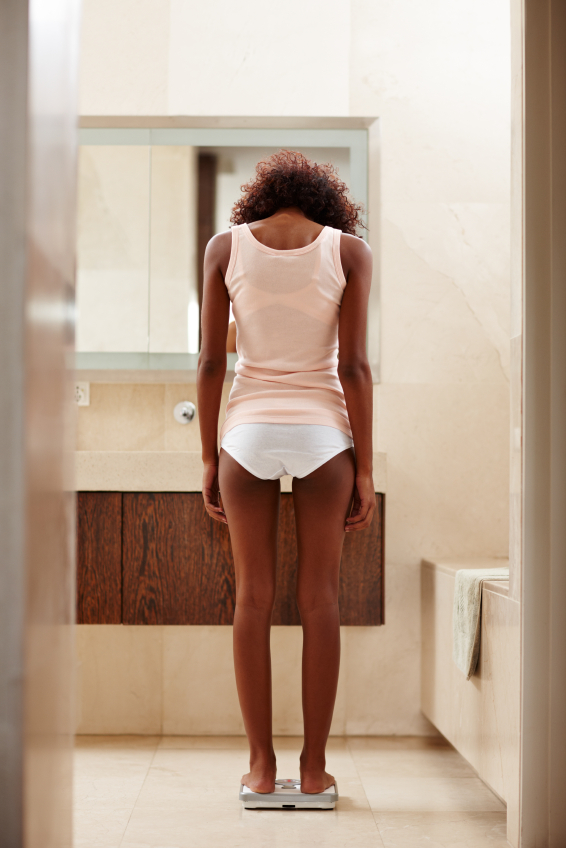
I went through bouts of taking laxatives, skipping meals and bulimia in an attempt to achieve the body I thought was most attractive – the skinnier the better – a view most girls seemed to think at the time. However, the skinnier I became, the more snappy, unhappy and tired I became.
the skinnier I became, the more snappy, unhappy and tired I became
No matter how much weight I lost, I thought ‘I can lose more’ but it was never enough and although I was a bit more confident, I was miserable and fixated with food and calories, planning what to eat (or rather not eat) whilst in bed. When I had a sweet craving, I would buy a chocolate bar, chew it and spit it out; that way I got to kill my craving but without adding any calories.
No matter how much weight I lost, I thought ‘I can lose more’
Around 17 years of age, I had a dream of my mum walking into my room to find that I had died due to anorexia. I then pictured my friend, Ledean, who died aged ten of a brain tumour, and her mum, crying at her graveyard. I woke up thinking ‘How stupid! Ledean didn’t have a choice, she died of something incurable and yet here you are starving yourself and causing unnecessary grief.’
Since then, I slowly stopped weighing myself frequently, started eating three meals a day that were reasonable portion sizes, and haven’t had an episode of eating disorder tendencies for several years.
Recent research from Dove proves that I’m not the only one to suffer with body image and a lack of confidence. Dove released their Choose Beautiful campaign this month after setting up cameras in London, San Francisco, Shanghai, Delhi and Sao Paolo with two doors; one labelled ‘Average’, one labelled ‘Beautiful’, to see which door women would choose to walk through. Unbelievably, 96 per cent of women choose the ‘Average’ door either because they didn’t feel they were beautiful enough or because they thought they might come across as vain.
https://www.youtube.com/watch?v=AwH81q-HlGE
Throughout the years, we’ve been bombarded with photoshopped images of female celebrities and models looking impossibly ‘perfect’ with ‘Size Zero’ and ‘thigh gap’ becoming a craze. On the other hand, if you’re naturally slim, you’ve probably been made to feel unattractive because you don’t possess Holly Willoughby’s assets or Beyonce’s bootylicious curves. With such contradictory messages, women have been left confused, battling a self-war with ever-growing insecurities about whether their body is deemed good enough or not, simply by what it looks like. Men don’t get this kind of scrutiny.
Women have been left confused, battling a self-war with ever-growing insecurities about whether their body is deemed good enough or not
But, this is finally changing.
Keira Knightley took a stand against airbrushing in August last year when she posed topless for Interview magazine and asked for her breasts not to be enhanced. Knightly told The Times ‘I’ve had my body manipulated so many times for so many different reasons. That [shoot] was one where I said ‘I’m fine doing the topless shot so long as you don’t make them any bigger or retouch’ because it does feel important to say it doesn’t matter what shape you are.’
Real women’s proportions were finally being portrayed through consumer products too. The Lammily doll, (said to be the new Barbie), arrived in November 2014, which had the average proportions of a 19-year-old American girl. It came with add-ons including spots, stretch marks and scars to show youngsters a more realistic image of how real women look rather than an impossible image that dolls such as Barbie comprised.
When Victoria’s Secret unleashed their new advert in October 2014 with the tag ‘The Perfect Body’ over ten slim lingerie models, there was a huge backlash. A petition was set up by Change.org stating ‘this perpetuates low self-esteem among women who are made to feel that their bodies are inadequate and unattractive because they do not fit into a narrow standard of beauty. It contributes to a culture that encourages serious health problems such as negative body image and eating disorders.’ The petition was signed by 31,000 people and within a month, Victoria’s Secret changed the tag to ‘A Body for Everybody’. The fact that so many people were outraged and backed the petition demonstrated that the public had enough of the unrealistic expectation set out for women and were no longer buying into an ideal.
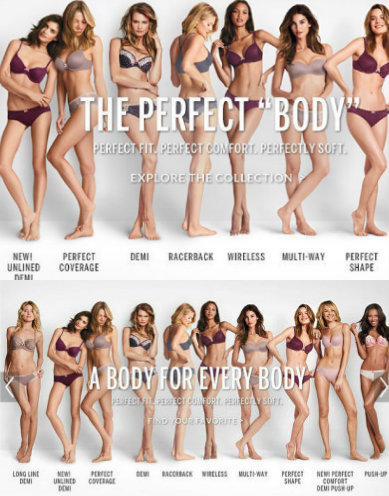
We’ve still got a long way to go though. A report carried out by UK fashion retailer, JD Williams, in October 2014 showed 61 per cent of women between 18 – 49 don’t feel confident in their bodies.
Scarily, ten million women in the UK were reported as ‘feeling depressed’ with their bodies in October 2014. In the survey carried out by the All Party Parliamentary Group on 2,339 women, 36 per cent also said they did not exercise ‘due to the way they feel they look.’
Ten million women in the UK were reported as ‘feeling depressed’ with their bodies in October 2014
This was reiterated by research led by Sports England, which showed that many women don’t participate in exercise due to a fear of being judged by their size, appearance or skill.
Research showed a massive gender gap when it came to exercising, with two million fewer women taking up sport to men.
75 per cent of women said they wanted to do more exercise but they feared ‘turning up to class and being judged that they’re not fit enough or people thinking ‘what does she look like?’ says Tanya Joseph, Director of Business Partnerships at Sport England. ‘Mothers felt people were judging them on spending time on themselves rather than with their kids.’
Sports England’s job is to get more people playing sport regularly so they released their This Girl Can Campaign in January this year with the intention to motivate and encourage health, fitness, body confidence and ‘liberate women’ says Joseph.
Their advert and billboards show real women of various shapes and sizes working up a sweat through different exercises. `I jiggle therefore I am` and `Sweating like a pig, feeling like a fox` are some of the lines used within the campaign. These are lines that were actually said by the women who feature in the adverts, captured in their own clothes working out in their local gyms and classes after they were approached at leisure centres, parks and supermarkets by Sports England.
https://www.youtube.com/watch?v=aN7lt0CYwHg
‘We don’t want women to conform to an unreal version of what it is to be a woman, and I think women have responded positively because these are women you can relate to,’ says Joseph.
We don’t want women to conform to an unreal version of what it is to be a woman
Women have approached Joseph in the street to tell her that it’s made them take up a sport or try something different. A male friend of hers who regularly attends Taekwondo said that two weeks after the advert was released, ten women turned up to the class, which had never happened before.
Joseph says: ‘Don’t let other people impact on your behaviour and health. The fact you’re doing something, whatever the reason, should be applauded as it still brings all the health benefits.’
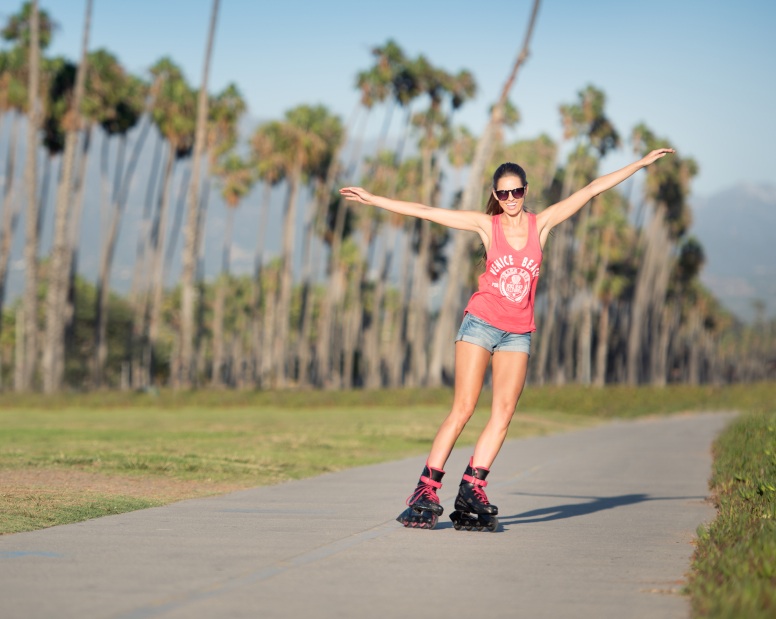
The idea of focusing on well-being, health and what our bodies can do over what they look like is backed up by Be Real, the national campaign whose aim is provide `body confidence for everyone` by trying to change peoples’ attitudes towards body image by using positive language and real imagery.
Staggeringly, BeReal found that there were 1,200 mentions of the word ‘diet’ in UK articles within the first five days of January 2014, a 43 per cent increase than the year before.
In response, Be Real launched their new campaign, Fightthefad, in January this year, which encourages people to have a long-term approach to body weight issues rather than focusing on quick-fix fad diets.
‘We want people to realise there’s more to life than being a certain size,’ says Samantha Arditti, Head of Be Real. ‘Whatever shape you are is great as long as you’re healthy.’
Whatever shape you are is great as long as you’re healthy
BeReal are eager for schools to promote body confidence as ‘we want young people to have a good body confident start to life. We’re pushing the Government to teach body confidence in PSHE so that children have a clearer understanding that what we see is fantasy’ says Arditti.
This is something that Tanya Joseph’s sister, Nadia Joseph, a learning mentor at a school in North London, has started doing. She has shown the This Girl Can advert in classes ‘to start conversations about imagery and confidence in the hope it’ll have a impact and make teenagers realise that the images of women in magazines aren’t the same as the women they see in real life’ says Joseph.
‘The pressure on people to look like someone in a magazine when the person in the magazine doesn’t look like that is madness’ says Arditti. It’s led her to launch Real Diversity, which campaigns for the media and advertisers to reflect what real women look like, regardless of age, size, ethnicity or disability.
The pressure on people to look like someone in a magazine when the person in the magazine doesn’t look like that is madness
‘It makes business sense as it’s been shown that when women see clothing reflected by people of a similar shape, they’re 300 per cent more likely to buy’ explains Arditti.
Finally, Be Real want people to focus on a long-term approach to weight loss and make lifestyle changes to be healthy.
Arditti says ‘We should take pride in our appearance but it gets to the point where people feel so bad about themselves that it holds them back.’
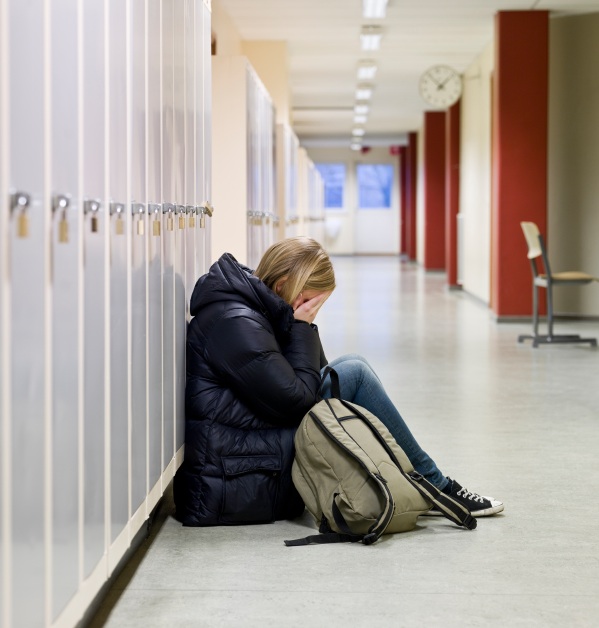
Sadly, a report released in December 2014 showed that ‘20 per cent of girls don’t give an opinion in class and 16 per cent don’t go to school when they feel bad about their looks.’
The review, carried out by psychotherapist Susie Orbach and the University of the West of England questioned over 49,000 girls and women between ten and 60.
This lack of confidence is something Kelsey Hibberd, 21, PR and Communications Intern from Rayleigh, Essex, could relate to.
Suffering from bad skin and teeth, weight issues and being the tallest in the class, Kelsey was bullied.‘It gets to a point where people don’t have to say anything because you automatically say it for them in your head. I was conditioned to thinking ‘You are horrible, you are worthless’ she says.
A particularly difficult moment for Kelsey was when she was 14 years old and ‘people were yelling things across the class about my appearance. The teacher chose to ignore it so not only did I feel bad about the way I looked but I felt worthless because it was as if the teacher didn’t think I was worth sticking up for.’
I felt worthless because it was as if the teacher didn’t think I was worth sticking up for
‘I’d think ‘why don’t the popular kids do anything?’ but now I realise that the popular girls probably felt the same way too – inadequate, ugly or unworthy, because they were comparing themselves to everyone else as well’ she adds.
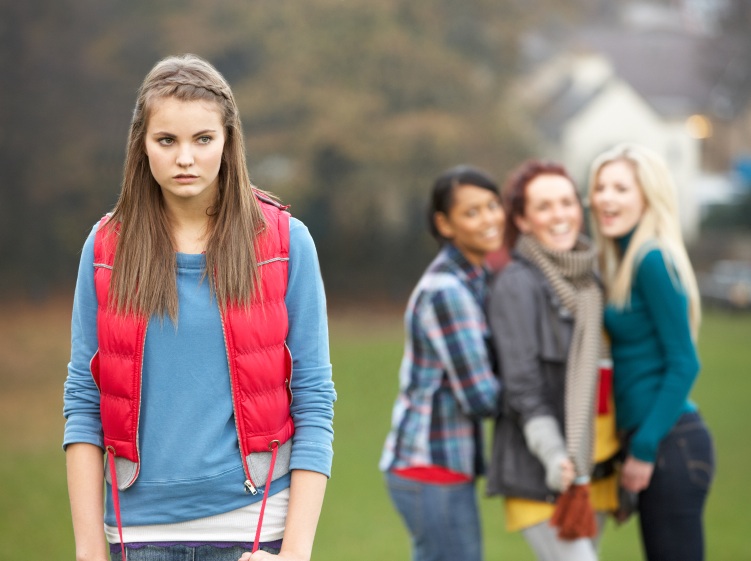
Kelsey tried to fit in by constantly changing her hair colour, wearing loads of makeup and trying ‘to mould myself to fit into certain groups like the chavs and emos, because I’d rather be labelled an emo than ‘the ugly kid’ which worked to an extent because I felt I belonged.’
The turning point for Kelsey was when she left school, started doing voluntary work with the youth counsel at 15 before joining the YMCA in Southend. Although she was also picked on at college, Kelsey had the confidence to stick up for herself ‘because I knew I was worth more.’
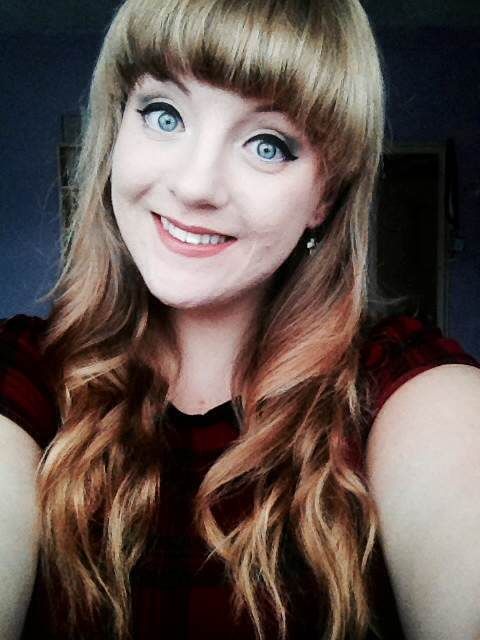
Kelsey may only be 21 but she’s won Campaigner of the year twice, been on TV, in magazines and is a National Youth Ambassador for YMCA England and involved with the BeReal Campaign. ‘These amazing opportunities wouldn’t have happened if I didn’t have the confidence’ she says.
Kelsey’s advice? ‘Think about the amount of time you’ve worried about your looks and where that worry has got you because I guarantee it’s not effective. Don’t surround yourself with people who are negative, comparative and judgemental because it circulates and causes unnecessary doubt in your mind.
‘There are going to be people that find you beautiful and people that don’t but it’s just an opinion. It’s like someone saying they prefer cheese to ham. It’s not a big deal, it’s nothing, it’s not who you are,’ she adds.
There are going to be people that find you beautiful and people that don’t but it’s just an opinion. It’s not who you are
Although a bigger size than when she left school, Kelsey’s happy with her body. ‘I see the same person but someone who embraces who they are now. I choose to dress for my shape and celebrate my body. I choose to do my hair and makeup so I look my best for myself.’
Embracing your body is something Pilates instructor and blogger Lottie Murphy used social media platform, Instagram, to promote. In January, she asked women to post three pictures of body parts ‘they love and one thing they want to improve’ with the hashtag #bodylovetag.
Her aim was to ‘bring realness and positivity to social media and show women that we all have our own hang-ups.’
Lottie, from South East London, created the bodylovetag after hearing so many women and girls in her Pilates class say negative things about their bodies and eating habits, such as ‘I feel so bad about eating chocolate today.’ Lottie also noticed that ‘people felt ashamed to say things they love about themselves.’
It worked as many women reposted, including ‘Frenchie and Fashion’ who said ‘I have big hips no matter how much I workout but I have a hell of a nice tummy and skinny arms so what.’
don’t put things off until you look the ‘right’ way. Start doing them no matter what
Sportswear fashion brand, Charli Cohen, promoted health at London Fashion Week earlier this year. Instead of using models, she only used healthy lifestyle bloggers (including Lottie) to model her clothes.
There are ways to take control of how you view and feel about your body too. In her book This Book Will Make You Feel Beautiful, Dr Jessamy Hibberd provides practical strategies to deal with various situations through Cognitive Body Therapy, (CBT). CBT is based on the notion that how we interpret a situation affects our body, behaviour and mood. It’s been used for disorders such as anorexia, bulimia, stress and anxiety.
‘How you feel and what you do are all connected. The way you interpret something has a big impact on how you feel. You have to remember that there’s more than one way of looking at situations’ says Dr Hibberd.
Unbelievably, research by The University of West England showed that 90 per cent of British women suffered from body image anxiety in 2012 – where the way a person sees themselves doesn’t match up to the reality of how they look.
90 per cent of British women suffered from body image anxiety in 2012
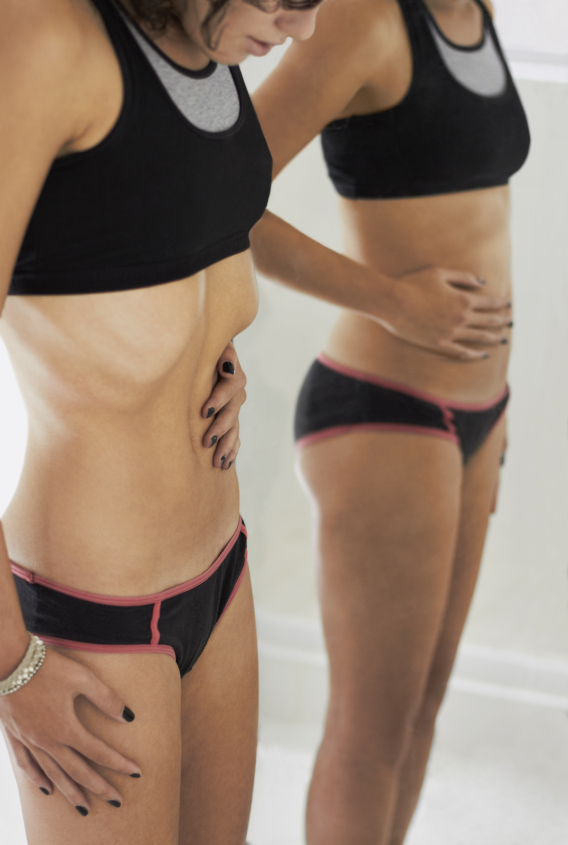
to how they actually look
‘People with body image anxiety believe their perception so strongly that it’s impossible to change their view,’ explains Dr Hibberd. ‘They think you’re just trying to be nice when you pay them compliments and see themselves in part, rather than looking at their reflection as a whole; focusing on the area they see as a flaw and ignoring anything that contradicts it.’
Dr Hibberd’s tips are to ‘stop looking in the mirror, weighing yourself and analysing photos, consider what someone says when they pay you a compliment, and don’t put things off until you look the ‘right’ way. Start doing them no matter what.’
It may be long overdue but these campaigns are positive steps and show that the public aren’t prepared to put up with unrealistic imagery and expectations anymore. The fact that women are coming together rather than going against one another is empowering.
The fact that women are coming together rather than going against one another is empowering
Focusing on health rather than size or weight will hopefully see a massive decrease in eating disorders, whether that’s binge eating or under-eating. For me, realising in hindsight that I was aiming for the impossible is a relief because it shows that it had nothing to do with a lack of willpower or not being good enough but because of the ridiculous messages I was getting that I had to look a certain way. To think I wasted so much time trying to achieve the unachievable and so much energy feeling guilty at not getting there is pitiful, and to an extent, stupid. It’s everybody’s right to feel comfortable and confident within their bodies and – though we still have a long way to go – I think we’re closer today to that than we’ve ever been.
Check out our video where we asked women to define beautiful
https://www.youtube.com/watch?v=ak3GIsE6Y_U
Like this article? Sign up to our newsletter to get more articles like this delivered straight to your inbox.



